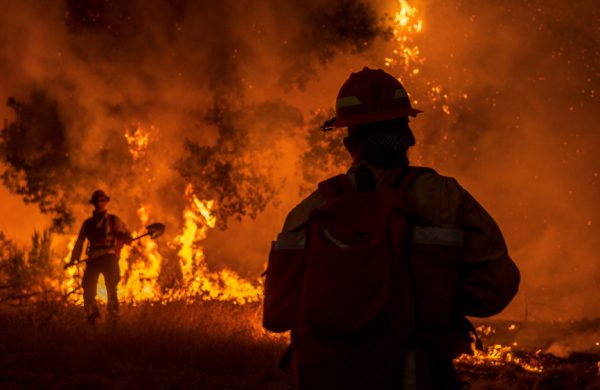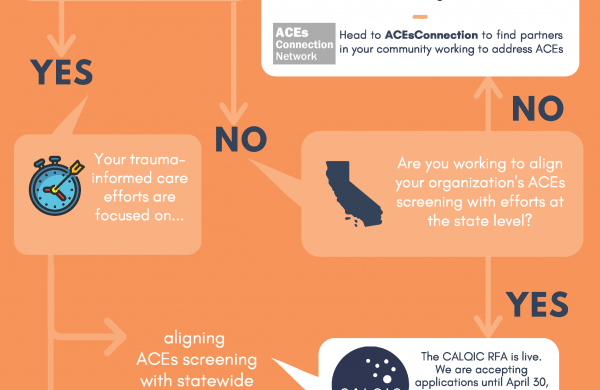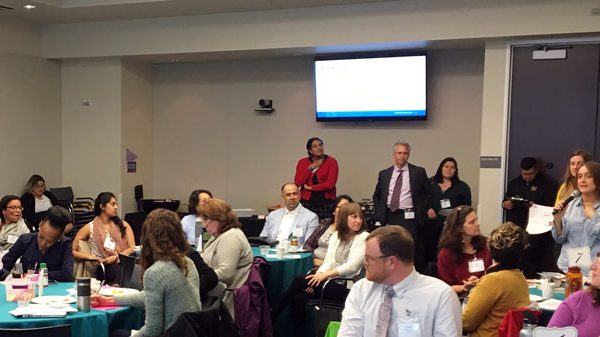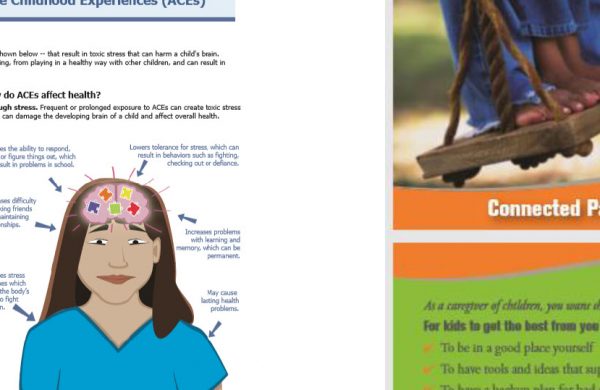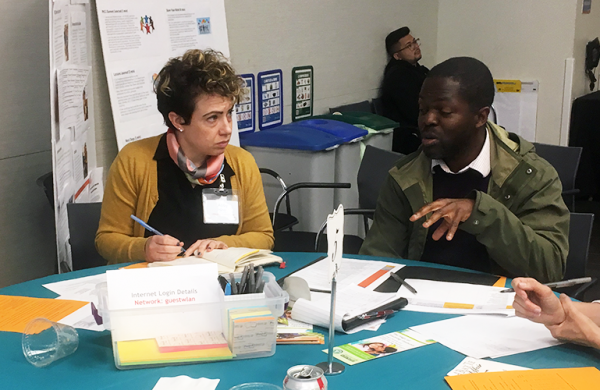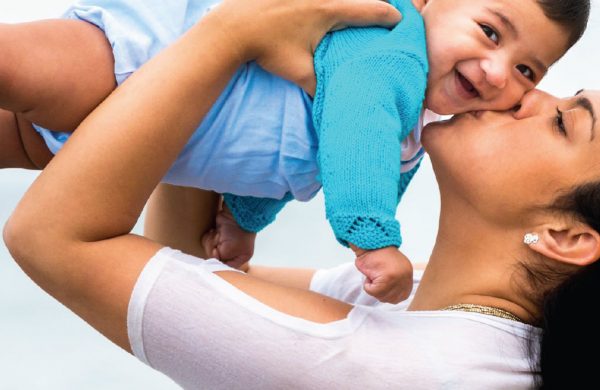Over the last two years, Sonoma County has been at the epicenter of California’s raging wildfires, which burned hundreds of thousands of acres in the region and millions across the state. In the small town of Guerneville, residents had to flee both fires and floods. “2019 was a really heavy year for us,” recalls psychologist Emilio Licea of the West County Health Centers. “We had a major flood—a historic flood, and our clinic was almost underwater. Water came right up to the parking lot and we were lucky enough to avoid that, but a lot of our patients and community were not.”
[caption id="attachment_26111" align="alignleft" width="470"]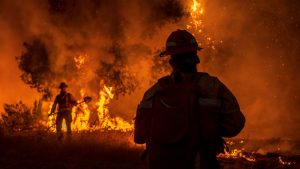 August 2020 wildfire in California[/caption]
“We also had the fires that same year, and that deeply impacted not only our patients, but our staff. We had a heavy year for personal loss among our staff, too; people who passed away, people who lost their homes, people whose partners committed suicide. It was just a difficult year to be at West County.” And if 2019 was nightmarish, 2020 was equally harrowing. It ushered in the deadly COVID-19 pandemic, along with another terrifying wildfire that forced tens of thousands of Western Sonoma residents to evacuate.
What helped Licea and other Sonoma health center staffers successfully navigate one unthinkable crisis after another was what they had learned about trauma in the Resilient Beginnings Collaborative (RBC), according to an October 2020 report by the Center for Community Health and Evaluation.
“Teams reported that the foundational work of RBC strengthened their organizations’ ability to respond to the traumas of 2020—COVID-19, wildfires, police violence towards Black people—and has reinforced the importance of this work,” the CCHE evaluators noted, discussing RBC’s two-year program to help seven Bay Area safety net clinics screen, treat and heal childhood adversity, a program led by the Center for Care Innovations in partnership with Genentech Charitable Giving.
August 2020 wildfire in California[/caption]
“We also had the fires that same year, and that deeply impacted not only our patients, but our staff. We had a heavy year for personal loss among our staff, too; people who passed away, people who lost their homes, people whose partners committed suicide. It was just a difficult year to be at West County.” And if 2019 was nightmarish, 2020 was equally harrowing. It ushered in the deadly COVID-19 pandemic, along with another terrifying wildfire that forced tens of thousands of Western Sonoma residents to evacuate.
What helped Licea and other Sonoma health center staffers successfully navigate one unthinkable crisis after another was what they had learned about trauma in the Resilient Beginnings Collaborative (RBC), according to an October 2020 report by the Center for Community Health and Evaluation.
“Teams reported that the foundational work of RBC strengthened their organizations’ ability to respond to the traumas of 2020—COVID-19, wildfires, police violence towards Black people—and has reinforced the importance of this work,” the CCHE evaluators noted, discussing RBC’s two-year program to help seven Bay Area safety net clinics screen, treat and heal childhood adversity, a program led by the Center for Care Innovations in partnership with Genentech Charitable Giving.
Transforming trauma
Launched in June 2018, Resilient Beginnings Collaborative was one of the first collaboratives in the state to explore identifying and addressing adverse childhood experiences (ACEs), which, left unaddressed, are associated with learning, physical and behavioral problems in childhood and a higher risk of depression, heart disease, cancer and other life-threatening illnesses in later life. “At the beginning of the initiative, most teams reported being relatively early in their journeys to being healing organizations,” noted the CCHE evaluators, adding that RBC focused on helping teams to change their structure to embrace the principles of resilience and trauma-informed care. Those principles, according to the CDC, include creating a feeling of safety, trustworthiness and transparency, peer support, collaboration, empowerment and choice, and paying close attention to culture, historical and gender issues. https://vimeo.com/477718168 It turned out to be an ideal time for such work. In 2018, the field of trauma-informed care and resilience was nascent but had gotten increased attention with the appointment of Dr. Nadine Burke Harris, a longtime advocate for addressing childhood trauma, as California’s first Surgeon General, the report explained. The public initiative she led to financially reimburse clinics for ACEs screening in primary care – known as ACEs Aware -- also generated interest across the state. What the Resilient Beginnings Collaborative couldn’t have foreseen is how quickly its training would be put into action. “Halfway through the program is when we started to have the floods and the fires, and [our work in RBC] allowed us to engage with our especially staff trauma in a way that we hadn't before,” Licea said. “Most of Sonoma County was evacuated, including all our staff members and patients. And very early on, we created the task force to help identify what staff members were in danger that needed help” and reach out to them. Thanks in part to RBC, he said, executive leaders in West County all backed this idea and supported a partnership with Petaluma Health Center to support traumatized health workers and community members. “Trauma thrives in darkness,” added Licea. “Silence is what perpetuates trauma, and us asking the questions is an endeavor to stop that silence.” A staff member at Marin Community Clinics interviewed for the report echoed this theme. “It’s been a very difficult time for everyone, with COVID and now with police brutality,” she said. “The sentiment when I reach out and check with people across all staff levels is exhaustion. Originally there was the adrenaline rush with COVID, going from practically zero telemedicine to almost 100 percent telemedicine. Now people are just exhausted. On top of that many staff have school-aged children. The RBC work has been critical in that we were able to use trauma language to name what was going on. We had several meetings where it was nice to see our CEO and CMO talk about how this is traumatic, this is grief, and call for kindness, grace, and patience with one another.” The RBC training, she said, helped staffers recognize why some colleagues were uncharacteristically testy or irritable and on edge, so they could support each other while moving forward.Other key findings
The CCHE evaluation report also outlined several other key themes from work in the 24-month collaborative:Leadership support is critical.
According to the report, RBC coaching “played an important role in engaging organizational leaders, advancing dialogue, [and] building understanding. This leadership commitment contributed to teams’ ability to sustain other aspects of their RBC work, as well as foster a more positive and productive response to the traumas of 2020.” Added one clinic employee at Lifelong: “Since COVID leadership has been having town hall meetings so staff can give their thoughts and feedback, and they’re being responsive and getting back to staff about the questions they ask. That’s been a huge difference.” [caption id="attachment_26114" align="alignleft" width="409"]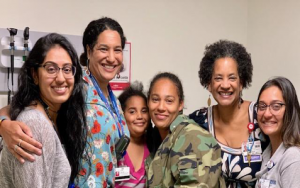 Dr, Dayna Long (second to left) and team in pre-COVID days[/caption]
Dr, Dayna Long (second to left) and team in pre-COVID days[/caption]

